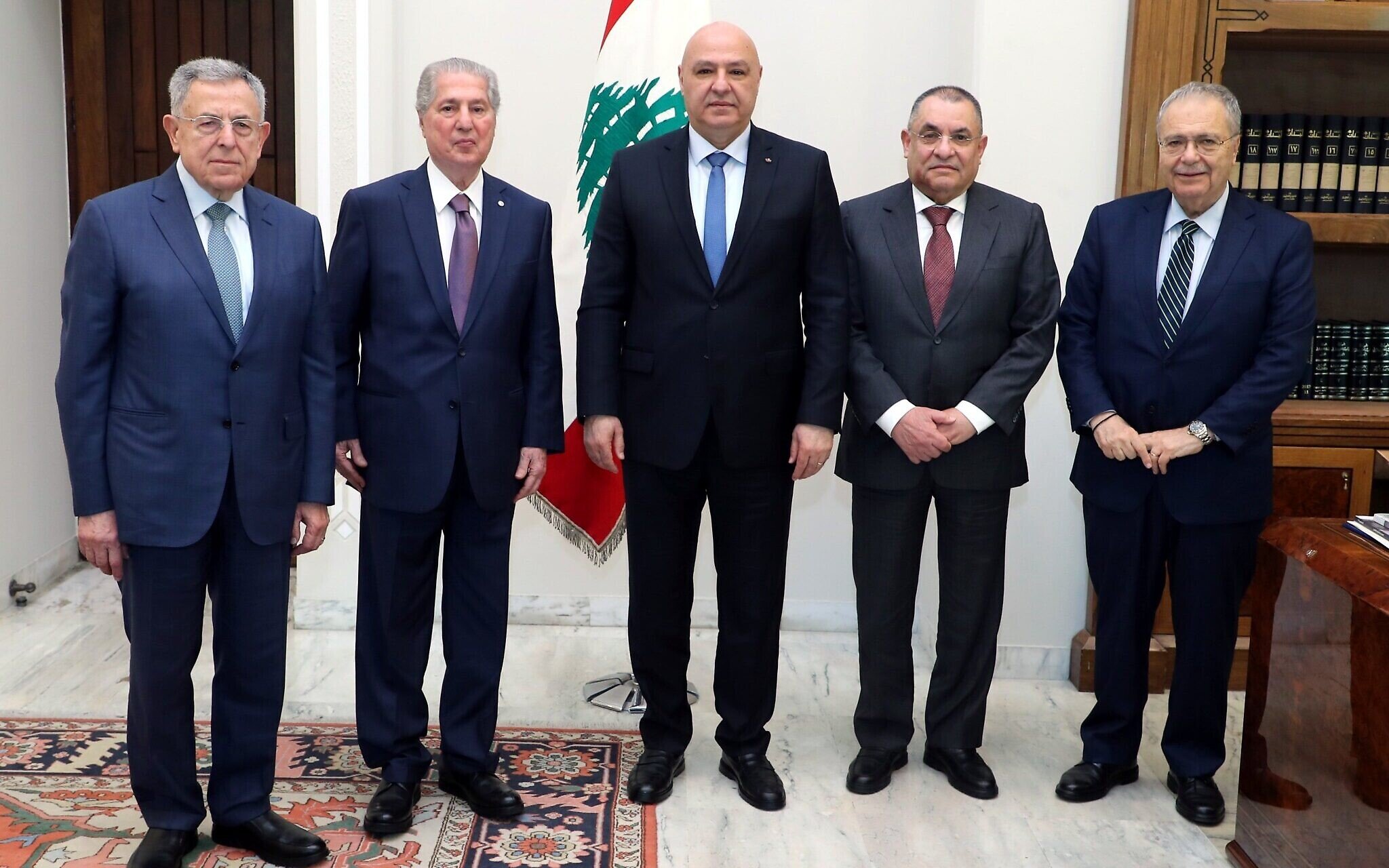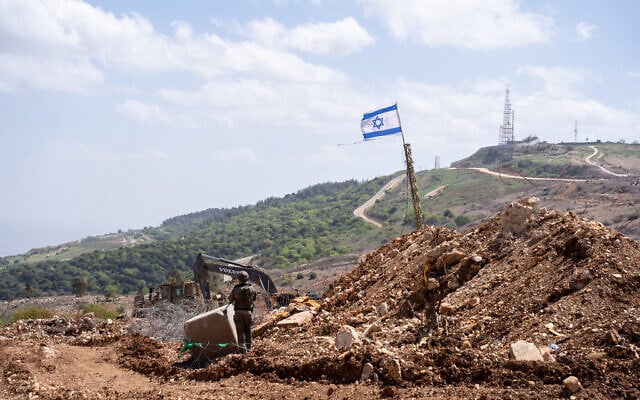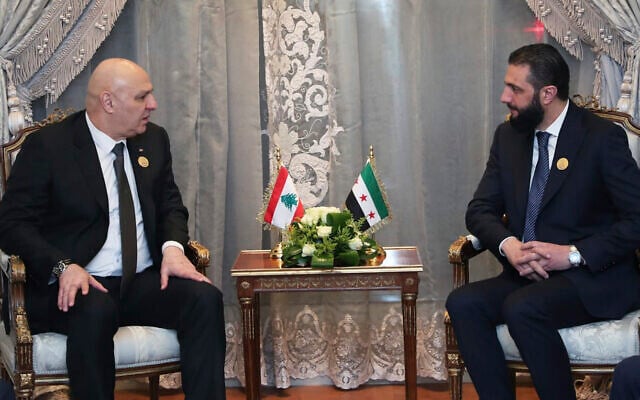



Lebanese President Joseph Aoun said Friday that his country currently has no plans to normalize ties with Israel, but that Beirut wants peaceful relations with its southern neighbor, which maintains some troop presence in Lebanon’s south following last year’s war against Hezbollah.
Meeting in Beirut with members of an Arab think tank, Aoun called for a full Israeli withdrawal from Lebanon, and said the decision to maintain a state monopoly on arms — a veiled threat against the heavily armed Iran-backed terror group Hezbollah — was “final.”
Addressing relations with Israel, Aoun “distinguished between peace and normalization,” according to a statement by his office.
“Peace is the lack of a state of war, and this is what matters to us in Lebanon at the moment. As for the issue of normalization, it is not currently part of Lebanese foreign policy,” Aoun was quoted as saying.
Aoun’s comments were Lebanon’s first official reaction to a statement last month by Israel’s Foreign Minister Gideon Sa’ar expressing interest in normalizing ties with Lebanon and Syria, which have both been in an official state of war with Israel since it was founded in 1948.
An Israeli official has said normalization with Lebanon could not proceed until Hezbollah is disarmed.
Aoun, whose election in January ended a two-year vacancy in the Lebanese presidency, has vowed to uphold a state monopoly on arms. Addressing the issue on Friday, he said “the decision to restrict arms is final and there is no turning back on it,” according to his office.
Aoun was also quoted praising Lebanon’s powerful parliament speaker, Hezbollah ally Nabih Berri, for his “contribution to… achieving the principle of restricting weapons.”
Hezbollah emerged weakened from the war with Israel, which ended with a November 27 ceasefire deal. Under the agreement, Hezbollah was required to vacate southern Lebanon. Israel was given 60 days to do so, to be replaced by the Lebanese army and international peacekeepers.
The IDF has since withdrawn from all but five points, which overlook the border. In his comments on Friday, Aoun said Israeli troops in Lebanon “obstruct the complete deployment of the army up to the internationally recognized borders,” according to Lebanese state broadcaster LBCI.
He also expressed support for improved relations with Syria’s interim president, Ahmed al-Sharaa, who toppled Iran-backed Syrian President Bashar al-Assad in December. Assad, whose rule was bolstered by Iran and Hezbollah, had let Syria become a throughway for arms and other deliveries from Tehran to its Lebanese proxy.
LBCI said Aoun on Friday “noted that coordination is ongoing between Lebanese and Syrian security agencies to… prevent the smuggling of people, arms and drugs.”
The United States has been calling on Lebanon to fully disarm Hezbollah, and Lebanese authorities sent their response to Washington’s demand this week. While the response has not been made public, US special envoy Thomas Barrack said Monday that he was “unbelievably satisfied” with it.
Hezbollah, unprovoked, began launching near-daily rocket attacks on Israel on October 8, 2023 — a day after fellow Iran-backed terror group Hamas stormed southern Israel to kill some 1,200 people and take 251 hostages, sparking the war in Gaza.
Hezbollah’s rockets forced the displacement of some 60,000 residents of northern Israel. In a bid to ensure their safe return, Israel stepped up operations in Lebanon, decimating Hezbollah’s leadership and devastating areas identified with the group.


